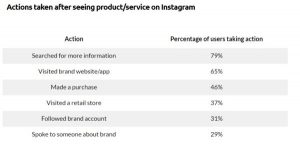
I was in the middle of my presentation. Before me was a stadium full of people I barely knew. Then something happened.
It is what all speakers dread.
My slides disappeared from the big screen behind me. Gone. And they never came back. It was a moment that all speakers hope will never happen.
But it did.
Stories touch hearts
People will forget what you said but they will never forget how you made them feel.
In that quote (often attributed to Carl Buechner) is the truth about the art of storytelling. Touching people’s hearts is at the centre of engagement.
When I started my online publishing venture it was all about the facts. Information, data and stats. When I commenced my speaking career my Powerpoint’s was all about bullet points. More information and more stuff. When I began writing emails the facts were the main hero.
But if you want to move people, educate and transform you need more than that in your toolbox.
As marketers, you need stories to be memorable. To persuade.
In a digital age and a noisy world, we need the art of storytelling more than ever.
Moments that people remember
I was in San Francisco.
It was a dinner with the team of a digital startup. That’s what you do in a city that sits at the edge of Silicon Valley.
And a person I had met a year earlier in another city and another continent made this statement as his opening line. “Hi Jeff…..I remember the story you told me 12 months ago“.
It wasn’t the facts……just a story. That’s what he remembered. I took note.
So where should you be using stories? Here are 4 ways to use stories in your marketing.
1. Presentations and speaking need the art of storytelling
Let’s find out what happened with my opening story.
It was the keynote at a conference in Lisbon and in front of me sat 700 people.
10 minutes into the presentation the computers driving the Powerpoint crashed. I was without the safety net and there was nowhere to hide.
I then had a quick and private nightmare……An “Oh gosh” moment.
It will happen to all of us some time as we live in a world where the machines do misbehave! Despite the best efforts of the tech team the slides never quite made it back. So it was time to dig deep and to keep calm and cool.
I had no choice. The solution was 30 minutes of storytelling from the heart without a safety net.
Bruno was in the crowd and later shared it as an observer on my Facebook page.
“From this side, the speech is so much more genuine, that you can tell the difference. Suddenly, we felt that we were jumping with you into the storytelling! What a great micro-moment!!”
One of my speaking coaches made a suggestion that changed my approach to delivering keynotes. “Tell a story and make a point…then do it again“.
Don’t use bullet points so small I can’t even read. Give me you.
Tell me your stories.
2. Include stories in articles
I see so many posts and articles online that are so bland and non-memorable. They list facts and figures and leave out humanity. Content marketing devoid of humans.
One of the best writers I have stumbled upon is Jeff Haden. He often starts with a story.
By the way, he also isn’t bad at the art of the headline.

Here is the opening story that he used in this post on LinkedIn that we can all relate to.
“I was at a conference with a client. Everyone knew him. He was the guy. I was just some guy with him. No problem… until he got pulled away.
Then I was just some guy who didn’t know a soul. And I’m really, really bad at being that guy”.
That is why great stories work. And they don’t need to be long or complex.
Did you want to read the rest of the article?
3. Share your stories in videos
A friend of mine was watching a casual 5-minute video interview that I had done with Mark Schaefer a few months earlier. She said you need to tell that story more often and to a bigger audience. I didn’t think that it was worth telling.
The reality is that I thought that no-one cared about my story but the truth is different. But someone had to tell me that it was powerful and worth sharing.
So, share your story on video.
It could be Facebook “Live”, Periscope or YouTube. Don’t get stuck on what type of platform, just make sure it is created, published and shared.
4. Use stories in your emails
The ultimate goal of copywriting as used in advertising is to sell products. They are at the sharp end of the content marketing funnel. And great copywriting is a digital world is often seen in email marketing
Great copywriting will touch hearts and minds. It gains attention. It invokes or suggests a response.
It is required for landing pages, blog posts, tweets and even sent with that image or photo (just to name a few). But email is one of the the core media types that requires skilled copywriting. It uses the power of words alone to cut through the clutter that bombards us every day.
It was an “aha” moment for me when after writing an email to market a conference I received a reply I will never forget.
The email:

The response:

It was the best “No” I had ever received.
But getting an email in return as if you had written to them alone is when it seems worthwhile. That is the magic of copywriting that touches a human heart. Thanks Bill Dolin for sharing your story.
And that is the true art of sales copywriting.
The attractive character
Russell Brunson introduced to me the concept of using your story when people subscribe to your email list. His description of that approach is the “attractive character”
When people discover you online they have never met you. They don’t know your story. Use your introductory sequence to tell your story.
If you download the ebook “101+ Tips and Tactics to Grow your Web Traffic” and you will discover what I mean. The resulting email sequence you will receive is a sequence of stories.
Over to you
Stories have been used for tens of thousands of years. They are embedded in our psyche. It’s what makes us human.
How could you use storytelling?
Business & Finance Articles on Business 2 Community(65)




